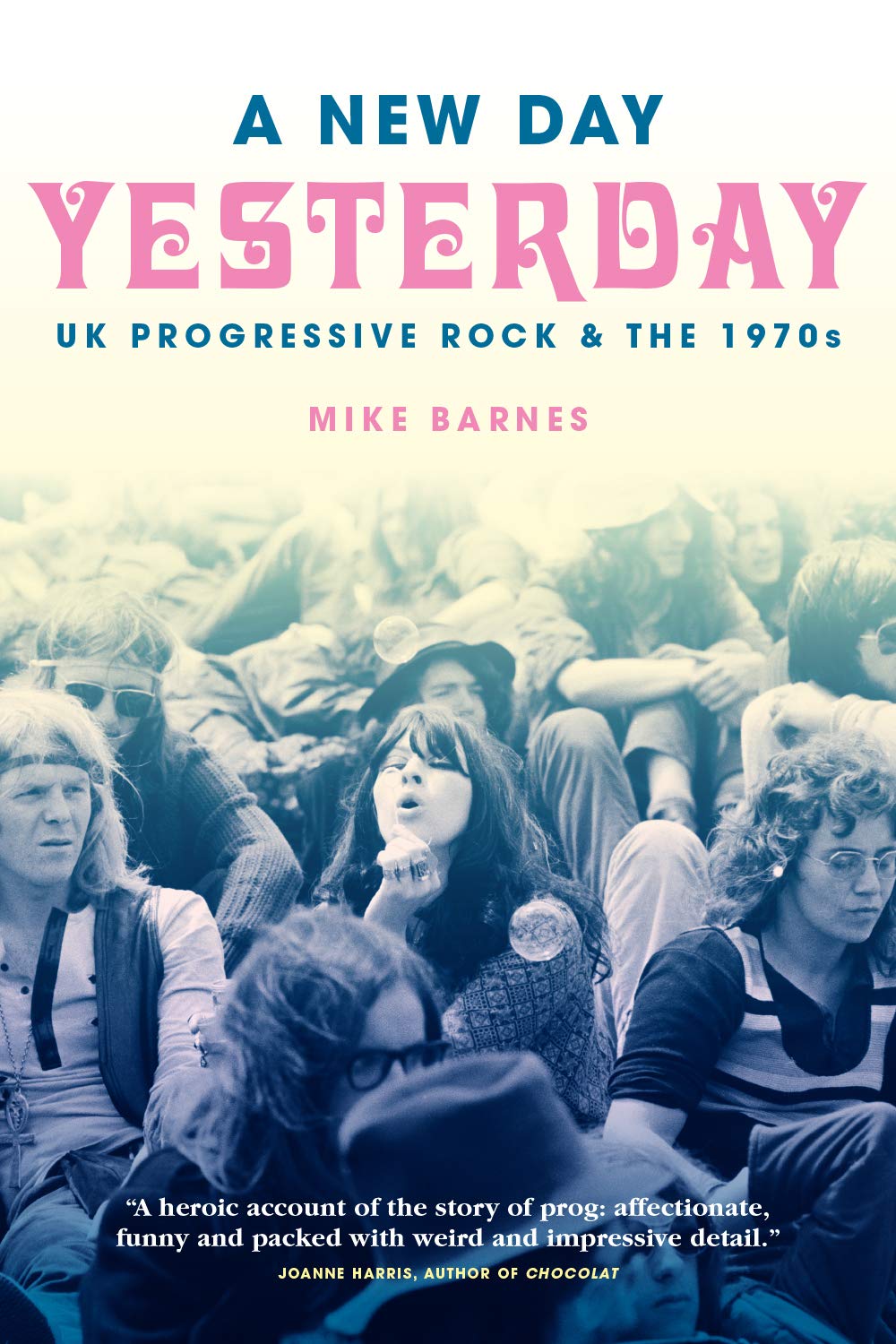
MIKE BARNES – A New Day Yesterday – UK Progressive Rock & the 1970s
- by J.N.
- Posted on 10-02-2020
“A New Day Yesterday” primarily chronicles the late 60s (and that includes psychedelic rock and proto-prog) and the first half of the 70s, which makes perfect sense as those were undoubtedly the most pivotal and pioneering years in terms of progressive rock music. It evokes an almost poignant sense of a glorious period in British musical history that spawned so many wonderful records and songs that still resonate today. Barnes’ thorough examination of progressive UK music from that bygone era is an exhaustive and utterly informative read, and there is an awful lot to absorb here even for those of you who consider yourself connoisseurs of the genre. One of the best parts of the this exquisite literary work is that it casts various different bands and musicians in a new light thanks to the enlightening interviews. Perhaps the best part of “A New Day Yesterday” is that it made me go back and listen to some of those albums from a different perspective, which is to say that the book made me appreciate certain aspects of LPS and groups and whatnot even more than I already did beforehand. Many of the interviews have a disarming honesty to them, and I found it deeply fascinating to learn more about the artists’ ambitions and aspirations, their goals and visions, and what they wished to convey by means of sound and lyrics.
“A New Day Yesterday” is an engaging and thought-provoking piece that moves beyond and transcends the grandeur of the fabulous music in that it touches on and discusses the politics of the time, the (ab)use of drugs, the influx of different artistic ideals and modes of thought in Britain at the time, the London freak scene, the nature and importance of festivals in the 70s, and perhaps most importantly, why so many fans and listeners were so attracted to the long, epic, and sprawling compositions of Pink Floyd, Jethro Tull, Van Der Graaf Generator, and all the rest of those outfits. Why were they sucked into the swirling mass of melodies, complex arrangements, and clever songwriting in the first place? Why was (and is) prog rock so appealing? Mike Barnes has produced a book that is as inspiring as it is inspired and it illustrates and encapsulates the timelessness of British prog rock brilliantly while providing both answers and questions to all things prog.
